【限量預購贈品版】《藝術認證》No. 96(2021.06)泛‧南‧島航行指南 | 如何做好生意 - 2024年11月

【限量預購贈品版】《藝術認證》No. 96(2021.06)泛‧南‧島航行指南
◆ 《藝術認證》改版全新再出發,揚帆啟航首刊必收
◆ 主題策畫半年刊,完整收錄11篇策展評論專文
◆ 23組藝術家作品圖錄精彩彙整,全文中英對照
◆ 從海洋、島嶼到人類世,疫情時代中的全新議題思索
曾經,人類隨著湧動的洋流遠航,從南島語族的遷徙到大航海時代的冒險,造就了無數文化的相遇與碰撞,促使世界形成我們今日所認知的模樣。如今,新的浪潮再度撲湧而來,特別是從2020年延燒至2021年的COVID-19疫情。但不同於過去的大航海時代或是近年的全球化浪潮使我們交流更頻繁,如今我們不再是能隨意互通有無、聯絡往來的網絡,而是盡可能的,各自封閉成一座孤島。
於此同時,高美館即將推出的《泛.南.島藝術祭》,便成為疫情時代中,最深刻、對比的展覽。展名「PAN──泛、南方、島嶼」,分別具有以下意涵:
泛Pan-廣泛與跨越邊界的視野
南方Austro-多元與非中心收束的觀點
島嶼Nesian-海洋性多邊連結
《泛.南.島藝術祭》試圖透過當代藝術提供超越血緣、語言、族群等跨疆界的「議題共同區」。即便因為疫情,讓《泛.南.島藝術祭》許多實體的交流變得不可能,但在「封閉」、「阻絕」的情境中,或許更能讓我們反思「連結」與「開放」的意義。
此外,本期也是《藝術認證》由雙月刊改版半年刊後的揚帆之作,同時是文集形式的展覽專輯。第一部分邀請總策劃人李玉玲館長介紹本次策展理念,暢談她如何從「大南方」架構延展至「泛.南.島」的思考。策展顧問札拉・斯坦霍普(Zara Stanhope)與魯本.福連德(Reuben Friend)也特別撰文:斯坦霍普對照《泛.南.島藝術祭》與其他雙年展、藝術季的策劃形式,指出其未來的發展可能;福連德則聚焦於海洋與島嶼概念的探究,並介紹太平洋藝術家如何以創作回應相關概念。第二部分則涵蓋參展23組藝術家與作品的詳盡介紹與精彩作品照,供讀者完整閱讀。第三部分則由策展團隊透過爬梳藝術家創作概念,引介更廣闊的命題。如徐柏涵談論〈雅加達事件簿〉與〈海不平面〉中,地圖如何象徵、展現人類的觀看與想像;方彥翔從〈山羌模仿術〉思索人類與動物的角色互換與溝通可能;亦有多篇文章討論原民文化傳承與藝術創作的關係,包含曾芳玲、謝宇婷、崔綵珊、柯念璞等作者。專文也特別介紹於高美館園區創作的盧建銘與劉哲安,如何在自然環境中,進行文化與藝術實驗?
無法任意遠行的此刻,希望閱讀這本刊物能成為各位的嶄新旅程。讀者如同航行於洋面的小船,而藝術家的作品則如同浮現於海的島嶼,每一座島嶼都有自身的經歷與故事,彼此之間又互相連結。
歡迎您,與我們共同踏上《泛.南.島》的探險旅程。
*Most extensive and updated studies of Asia-Pacific artists from the view of Taiwan
*Inclusion of 23 artists from 7 countries
*11 in-depth curatorial articles exploring themes from ocean, islandness to Anthropocene
*Bilingual publication in Chinese & English
Once upon a time, humans sailed across the surging ocean, traveling, along the ocean currents, to far-away lands. From the migration of the Austronesians to the adventures in the Age of Exploration, these voyages generated countless cultural encounters and collisions, which have contributed to making the world we know today. Now, a new wave is rising again; notably, the COVID-19 pandemic has been raging from 2020 to 2021. While the tide of globalization used to make our communications more frequent, nowadays, we are no longer a network in which everyone is free to contact one another; instead, we have done everything within our powers to become an island, isolated from one another.
In the meantime, Kaohsiung Museum of Fine Arts (KMFA) is ready to present “Pan-Austro-Nesian Arts Festival”: the deepest and most contrasting exhibition in the age of the pandemic. The meaning of each word in “Pan-Austro-Nesian” is:
Pan ─ expansive, all-inclusive visions that transcend boundaries.
Austro ─ plural, non-center-constrained perspectives.
Nesian ─ multilateral oceanic connections.
Pan-Austro-Nesian Arts Festival creates a common ground where issues are shared across blood ties, languages, ethnic groups, and national boundaries. Even though the outbreak makes many forms of physical interactions impossible for the exhibition, perhaps in this scenario of “closure” and “blockage”, we will be more likely to reflect on the meanings of "connection" and "openness".
In a time of travel restrictions, we hope reading this publication will be a new journey for you. The reader is the boat sailing across the ocean, and the artists’ works are the islands that emerge in the ocean, each has its individual experience and stories while still being connected to the others.
Furthermore, the present publication is the first issue of Art Accrediting since our transition from bimonthly to biannual publication, as well as being an exhibition catalogue in the form of an essay collection. In the first part of the issue, KMFA director Yulin Lee introduces the curatorial concept as the head curator of this exhibition. Curatorial Consultant Zara Stanhope compares the planning of “Pan-Austro-Nesian Arts Festival” to other biennales and art festivals whereas another Curatorial Consultant Reuben Friend focuses on exploring the concepts of the ocean and islands. The second part of the issue details information on all of the artists and artworks in the art festival for the reader’s reference. Finally, the third part contains the curatorial team’s insights into the artists and their creative concepts produced in the process of curating the exhibition.
We warmly invite you to join the exploration of “Pan-Austro-Nesian Arts Festival” with us.
作者簡介(依文章順序排序)
李玉玲
高雄市立美術館館長
札拉・斯坦霍普
紐西蘭塔拉納基大區戈維特-布魯斯特美術館/連恩萊藝術中心館長
魯本·福連德
紐西蘭帕特迦美術館館長
徐柏涵
高雄市立美術館研究發展部助理研究員
曾芳玲
高雄市立美術館展覽部主任
方彥翔
高雄市立美術館展覽部助理策展人
謝宇婷
高雄市立美術館研究發展部助理研究員
崔綵珊
高雄市立美術館展覽部助理策展人
柯念璞
高雄市立美術館展覽部助理策展人
黃瀚嶢
台大森林所碩士、專職生態圖文作家
蔡佳文
高雄市立美術館教育暨公共服務部教育專員
Authors(Name order according to appearance in the publication)
Yulin Lee
Director of Kaohsiung Museum of Fine Arts
Zara Stanhope
Director of Govett-Brewster Art Gallery/Len Lye Centre (GBAG/LLC), Taranaki, New Zealand
Reuben Friend
Director of Pātaka Art+Museum
Hsu Po-Han
Assistant Researcher at Kaohsiung Museum of Fine Arts Research and Development Department
Tseng Fang-Ling
Head of Exhibition at Kaohsiung Museum of Fine Arts
Fang Yen-Hsiang
Assistant Curator at Kaohsiung Museum of Fine Arts Exhibition Department
Hsieh Yu-Ting
Assistant Researcher at Kaohsiung Museum of Fine Arts Research and Development Department
Tsui Tsai-Shan
Assistant Curator at Kaohsiung Museum of Fine Arts Exhibition Department
Ko Nien-Pu
Assistant Curator at Kaohsiung Museum of Fine Arts Exhibition Department
Huang Han-Yau
Nature Writer and Ecological Illustrator; Graduated with Master Degree from School of Forestry and Resource conservation, National Taiwan University
Tsai Chia-Wen
Coordinator at Kaohsiung Museum of Fine Arts Education and Public Services Department
第一章 策展論述
關於《泛‧南‧島藝術祭》︱李玉玲
從未知到未知︱札拉・斯坦霍普
旅程待續:海洋藝術新潮流︱魯本·福連德
第二章 藝術家簡介
Yuki Kihara/ 王虹凱/ 吳思嶔/ 吳燦政/ 杉本博司/ 宜德思‧盧信/ 拉黑子‧達立夫/ 東冬‧侯溫/ 林介文/ 拉拉‧魯克/ 邱杰森&莫珊嵐/ 簡‧金‧凱森 / 約翰‧普爾/娜辛娜.霍海亞/ 張致中/ 張恩滿/ 強納森‧瓊斯/ 蒂摩爾古薪舞集/ 雷恩/ 雷斌/ 劉哲安/ 盧建銘/ 蘿拉‧葛里諾
第三章 評論專文
地圖之外,海面之內:關於「泛‧南‧島」的一些觀察︱徐柏涵
與大海共振的儀陣-蘿拉‧葛里諾的項鍊和林介文的織物︱曾芳玲
動物化、生動化與物種溝通:吳思嶔作品中的跨物種政治︱方彥翔
語言、土地、邊界:強納森.瓊斯如何以創作重建原民文化景觀︱謝宇婷
Varhung-聲之身,生不息︱崔綵珊
田地和山野,隨時都有我的魂守護著-高一生︱柯念璞
在森林中營造藝術—側記盧建銘的高美館生態復育行動︱ 黃瀚嶢
盧建銘x劉哲安:身體力行,回應環境的生態與文化復振實驗︱蔡佳文、謝宇婷
Chp1: Curatorial
About the “Pan-Austro-Nesian Arts Festival”︱Yulin Lee
From Unknown to Unknown︱Zara Stanhope
The Journey Continues: New Currents in Oceanic Art︱Reuben Friend
Chp2: Profile
Yuki Kihara/ Wang Hong-Kai/ Wu Sih-Chin/ Wu Tsan-Cheng / Hiroshi Sugimoto/ Idas Losin/ Rahic Talif / Dondon Hounwn/ Labay Eyong/ Lala Rukh/ Chiu Chieh-Sen & Margot Guillemot/ Jane Jin Kaisen/ John Pule / Ngahina Hohaia/ Chang Chih-Chung / Chang En-Man/ Jonathan Jones / Tjimur Dance Theatre / Kulele Ruladen / Masiswagger Zingrur / Varig Tinaway / Lu Chien Ming / Lola Greeno
Chp3: Essay
Beyond Maps, Beneath Sea Level: Observations on the “Pan-Austro-Nesian Arts Festival”︱Hsu Po-Han
A Ritual Formation that Resonates with the Ocean: On Lola Greeno’s Necklaces and Labay Eyong’s Textiles︱Tseng Fang-Ling
Animalizing, Animating, and Interspecies Communication: Interspecies Politics in Wu Sih-Chin’s Works︱Fang Yen-Hsiang
Language, Land, Borders: How Jonathan Jones Rebuilds the Aboriginal Cultural Landscape︱Hsieh Yu-Ting
Varhung: The Infinite Body of Sound︱Tsui Tsai-Shan
The fields and Mountains are Evermore Guarded by My Soul - Uong e Yatauyungana︱Ko Nien-Pu
Creating Arts in the Forest - Behind the Scenes of Chien-Ming LU’s Ecological Restoration Project at Kaohsiung Museum of Fine Arts︱ Huang Han-Yau
Lu Chien-Ming x Varig Tinaway: Practice and Respond Toward the Ecology of the Environment and Cultural Revival Experiment︱Tsai Chia-Wen, Hsieh Yu-Ting
緣起
為何我們要做泛‧南‧島
《泛‧南‧島藝術祭》是我們在構思一個可能屬於高雄的城市文化新品牌時,所提出的一個階段性提問。《泛‧南‧島》是一個新創的詞彙,從三個字作為切入點,分別意指了展覽希望採取的對話姿勢:
泛Pan-廣泛與非固著邊界的視野
南方Austro-多元差異與非中心收束的觀點
島嶼Nesian-海洋性多邊連結
在「泛」的概念下,展覽意圖鬆脫既定的意識形態和主流文化框架,透過「南方」與「島嶼」這兩個具「流動」與「游離」意象的概念,提出與主流文化具相對性「開放」的概念。
於本文的伊始,身為本展的總策劃,我想必須也提到這個展覽的舉辦緣起。自 2016年擔任館長以來,將近 5年的時間,我不斷思考美術館典範如何轉移。其中一個重要環節,即是如何延展高美館所累積的大量南部藝術家作品的能量,使之成為不僅是豐富台灣,甚至是全球在構築現、當代美術史時,多元差異的敘事元素。2019年高美館完成 3樓空間改造,成立「大南方多元史觀典藏特展室」就是這個思維的結晶。我們這幾年嘗試整合幾個有關「南方」的範疇,提出更大尺度的「大南方/ South Plus」作為新座標,讓「南方」從地理指涉中鬆脫開來,轉向以高雄長期所處的政經、文化的「南/難」處境,作為銜接高美館與「全球南方」後殖民文化語境的切入點。
延續著過往「地域南方」或「地理南方」的典藏脈絡,我也同步爬梳幾任館長對台灣原民創作的典藏,特別是從 2005年由李俊賢前館長推動的「南島當代藝術計畫」。透過有意識的收藏、駐館創作或策展「南島當代藝術」,高美館不只培育臺灣自身的原住民當代藝術家,也透過藝術的形式,將具有南島語族身分或認同的藝術家或研究者聯繫起來,藉此經年累月蓄積了豐沛的研究與論述能量。
因此,首次舉辦的《泛‧南‧島藝術祭》,正是企圖以「去邊界」、「多元」、「海洋文化」等更具流動性與包容力的語境想像,鬆脫高美館「南島當代藝術計畫」所建立的,根基於既有語系、血緣固著的南島、原民框架,藉此將原民的當代創作,嫁接進「大南方」的座標網絡,讓原民文化正式成為建構高美館新座標「大南方」的元素之一;我們的企圖是,一方面回應台灣原民當代創作的豐沛能量,同時也期望能更積極錨定原民文化與當代社會發展的必要關聯性 (relevancy)。透過建構差異文化彼此對話、相互激盪的「大南方」新座標,我們除了試圖擴大台灣文化主體性的想像光譜與論述之外,同時,也借徑南島語系的鏈結,拓展台灣與世界對話的渠徑 (channel)。
另一方面,作為一座城市的美術館,我也經常思考如何藉由藝術家敏銳的直覺,賦予城市更豐富的思想樣貌。因應臺灣逐步升起的海洋意識,更進一步回應島嶼南方的城市高雄以海洋「向外連結」的想像,形塑出具有對話意識的視覺場域。而展覽以「藝術祭」為名,也隱含了我們希望《泛‧南‧島》持續儲備能量,有朝一日能周期性籌辦的期許。
是以,我提出了《泛‧南‧島》的概念,希望從現有的根基更往前一步,邀集身處於同一片大洋各處的藝術家,自由地闡述各自的觀點和想像。我們期待《泛‧南‧島》能逐步成為一個新的文化品牌,強調橫越洋流的各種內在與外在探索,以及無法被分類的多樣性。
About the Pan-Austro-Nesian Arts Festival
By Yulin Lee (KMFA Director and Chief Curator of the Pan-Austro-Nesian Arts Festival)
Inception of the Pan-Austro-Nesian Arts Festival
The Pan-Austro-Nesia Arts Festival is the capstone project that we proposed in creating a new cultural brand that represents the city of Kaohsiung. "Pan-Austro-Nesian" is a made-up term that uses the three composing words to convey a position that the exhibition would like to take, a position that is willing to engage in dialogues:
Pan(泛)-expansive, all-inclusive visions that transcend boundaries;
Austro(南方)-plural, non-center-constrained perspectives from the South;
Nesian(島嶼)-multi-lateral oceanic connections.
The concept of “Pan” conveys the intention to break loose from conventional ideologies and mainstream cultural frameworks; the ideas of “Austro” and “Nesian”, associated with fluidity and dissociation, imply a kind of relative “openness”.
To begin this article and as the chief curator of this exhibition, I feel obligated to share how we first decided to organize this exhibition. During the past five years since I started to serve as Director at Kaohsiung Museum of Fine Arts (KMFA) in 2016, I have been contemplating about how an art museum can lead paradigm shifts. One critical aspect is to build on the massive creative energy of southern artists that the KMFA has accumulated over time and transform it into a narrative element that enriches the modern and contemporary art history discourse not only in Taiwan but even globally. What crystalized from this concept was the South Plus: Constructing Historical Pluralism from the KMFA Collection, a special collection we created following our third-floor renovation in 2019. Over the years, we have attempted to integrate different areas of “the South” and proposed the concept of South Plus, a new coordinate system based on larger scales. This allows us to break free from the geographical dimension of “southern” and focus more on the political, economic and cultural predicaments long facing the southern city of Kaohsiung. This is how we fit the KMFA within the post-colonial cultural context of the “Global South”.
Following this curatorial context of the “regional south” or “geographic south”, I also combed through the indigenous collections that my predecessors built, especially with regards to the Contemporary Austronesian Art Project initiated by former Director Lee Jiun-Shyan in 2005. Through deliberately building collections, inviting resident artists and curating related exhibitions, KMFA has not only cultivated Taiwan's contemporary indigenous artists but also, through the forms of art, brought together artists or researchers with Austronesian ties or identities. Over time, the KMFA has accumulated abundant research and discourses on this topic.
Thus, this inaugural Pan-Austro-Nesian Arts Festival aims to create a more inclusive context and fluid imagination, using concepts such as pluralism, oceanic culture, and boundary-free to break loose from the previous Austronesia and indigenous frameworks under the Contemporary Austronesian Art Project that were rigidly based on languages and blood ties. In this way, we can formally include indigenous cultures as an element in building the KMFA’s South Plus vision. On one hand, we aim to respond to the artistic creativity of Taiwan’s contemporary indigenous artists. We also hope to proactively identify the relevancy between indigenous cultures and contemporary societal development. In constructing the new coordinate system of “South Plus,” introducing dialogue among different cultures to stimulate each other, we want to expand the imaginations and discourses on Taiwan’s cultural sovereignty while also expanding channels for Taiwan to engage in dialogue with the world based on our Austronesia ties.
On the other hand, as we position the KMFA as a city art museum, I often think about how we can further enrich the minds of the residents in the city with the keen intuition of artists. In response to Taiwan's rising oceanic awareness and to the “outward-exploring” city image of the southern harbor city of Kaoshiung, this exhibition formulates a visual ground for conscious dialogues. We named this exhibition an “art festival”, which also implies that one day when we garner sufficient energy, we want to be able to regularly hold the Pan-Austro-Nesian Arts Festival.
I therefore proposed the concept of “Pan-Austro-Nesian”, hoping to take a stride further from our current foundation and to invite artists from around the same ocean to freely express their views and imaginations. We expect the Pan-Austro-Nesian Arts Festival to gradually become a new cultural brand that highlights the various internal and external excursions across ocean currents, and that underlines the rich diversity that cannot be easily categorized.
(To be continued)
旅程待續:海洋藝術新潮流 文 | 魯本·福連德 Reuben Friend(帕特迦美術館館長/《泛.南.島藝術祭》策展顧問) 從展示櫥窗中解放 2009年高雄市立美術館邀請了紐西蘭-奧特亞羅瓦(譯註:奧特亞羅瓦Aotearoa是毛利人對紐西蘭的稱呼)拉羅湯加島的藝術家兼策展人吉姆·維維亞雷(Jim Vivieaere)共同策展,展名為「蒲伏靈境—山海子民的追尋之路」(The Great Journey: In Pursuit of the Ancestral Realm)。策展人維維亞雷企圖找尋臺灣在大洋洲島嶼之中的文化和地理定位,他對《蒲伏靈境》展覽的貢獻及策展實踐所造成的影響,都成為我思考《泛‧南‧島藝術祭》與參展藝術家的重要依據。 當代藝術的「島嶼性」(Islandness)概念一直是個很難釐清的主題,而維維亞雷早在《蒲伏靈境》之前數年來就一直試圖處理「島嶼性」的議題。維維亞雷於1994年在威靈頓市立美術館(City Gallery Wellington )的開創性展覽《瓶裝海洋》(Bottled Ocean)在紐西蘭-奧特亞羅瓦藝術史上留下了難以磨滅的印記,標誌著過去海洋藝術和藝術家已經過時的人類學觀點產生了重大變化。如同彼得·布倫特(Peter Brunt)博士在2012年出版的《大洋洲藝術》一書中所言,展覽《瓶裝海洋》凸顯出當代太平洋藝術「出現」在紐西蘭藝術世界的菁英美術館的現象,其實是一個我們要反思的問題,而不是值得慶祝的勝利。維維亞雷受邀調查太平洋移民的作品,隨後將展覽變成了一件裝置作品,本身就是藝術品……」。 作為藝術家暨策展人,維維亞雷擁有獨特觀點和能力,善於重塑策展手法,作為他自己藝術實踐的延伸。維維亞雷在《瓶裝海洋》中的主要構思是將藝術品放置在透明的壓克力板螢幕後面,將整個展覽裝入一個巨大的博物館展示櫥窗。讓太平洋藝術脫離考古學和人類學塵封的研究,成為他畢生的志業,也傳承給新一代的海洋藝術家和策展人,讓他們自由地探索當代藝術實踐的新潮流。
 用日本小孩的方法記單字:全圖解,記...
用日本小孩的方法記單字:全圖解,記...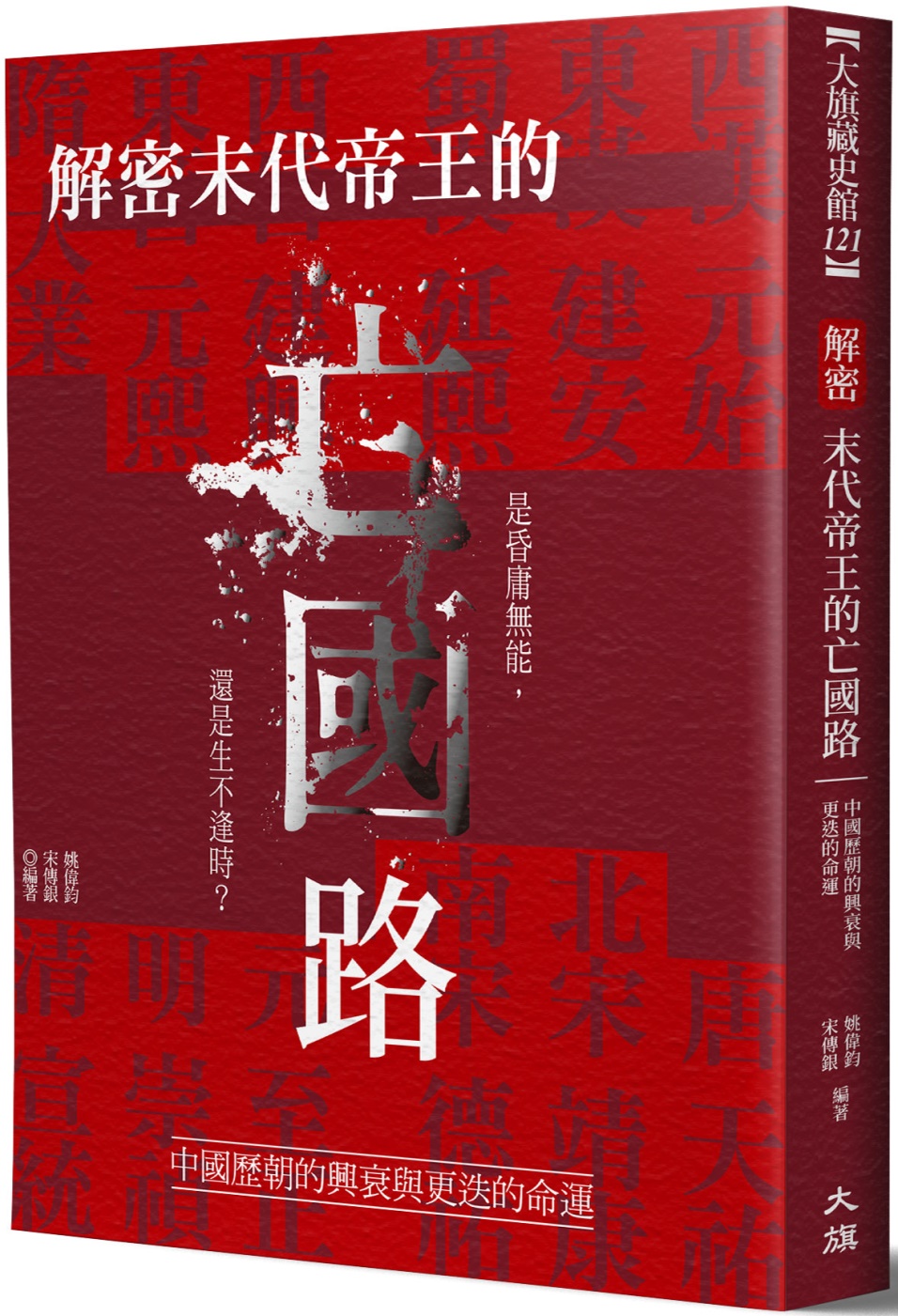 解密末代帝王的亡國路:中國歷朝的興...
解密末代帝王的亡國路:中國歷朝的興...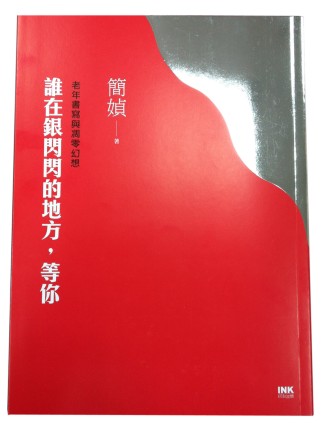 誰在銀閃閃的地方,等你:老年書寫與...
誰在銀閃閃的地方,等你:老年書寫與...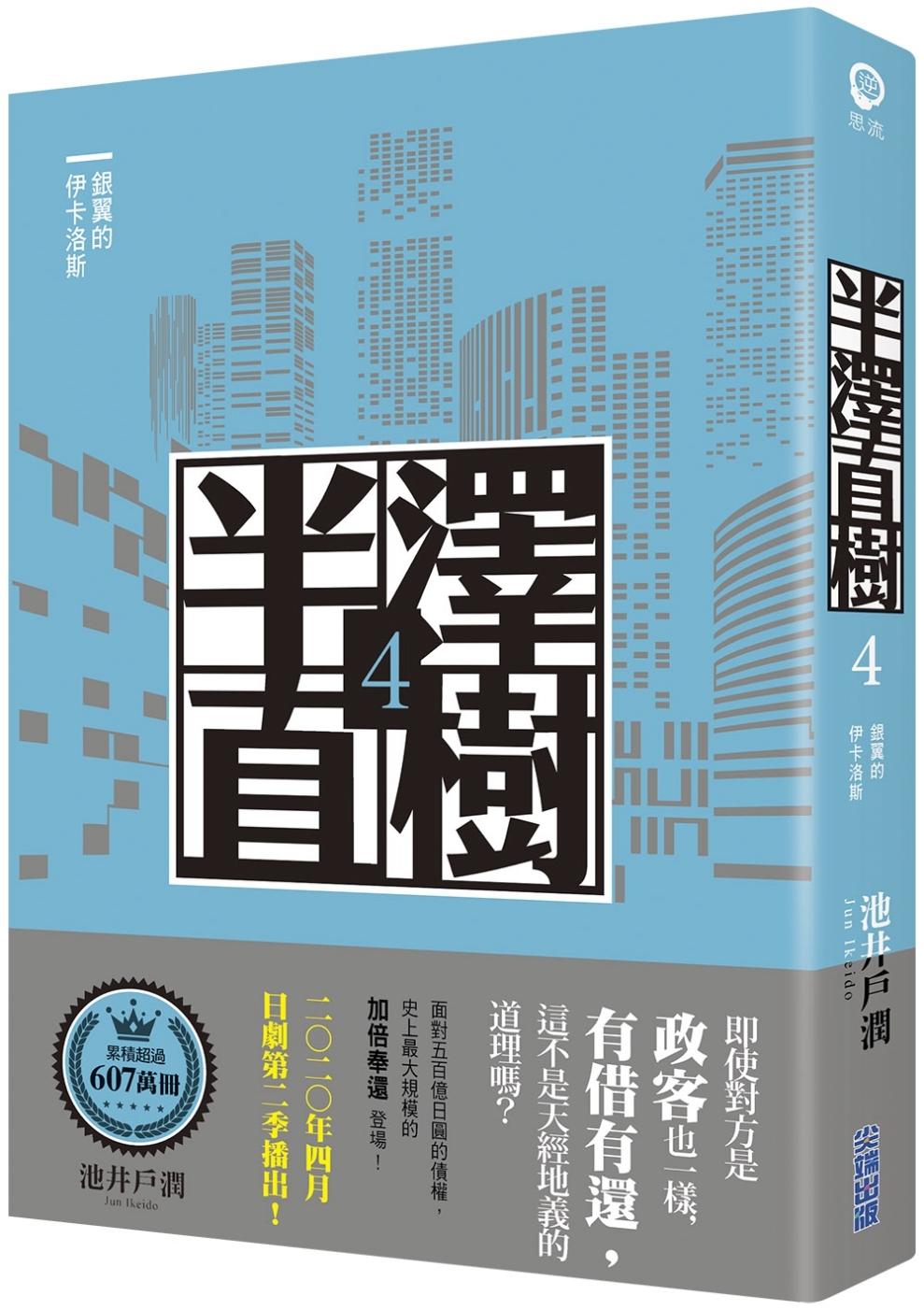 半澤直樹系列4:銀翼的伊卡洛斯
半澤直樹系列4:銀翼的伊卡洛斯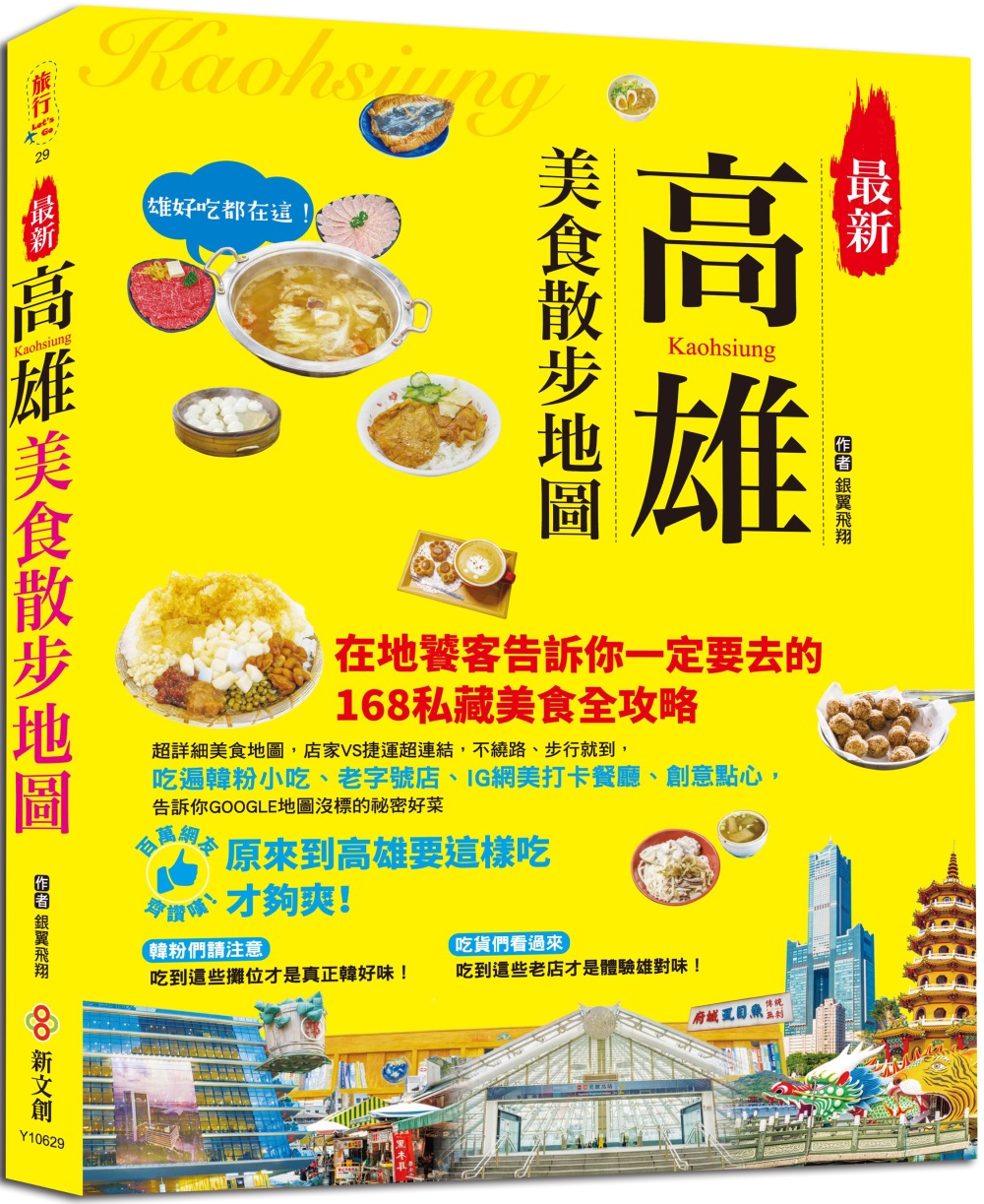 最新高雄美食散步地圖:在地老饕告訴...
最新高雄美食散步地圖:在地老饕告訴...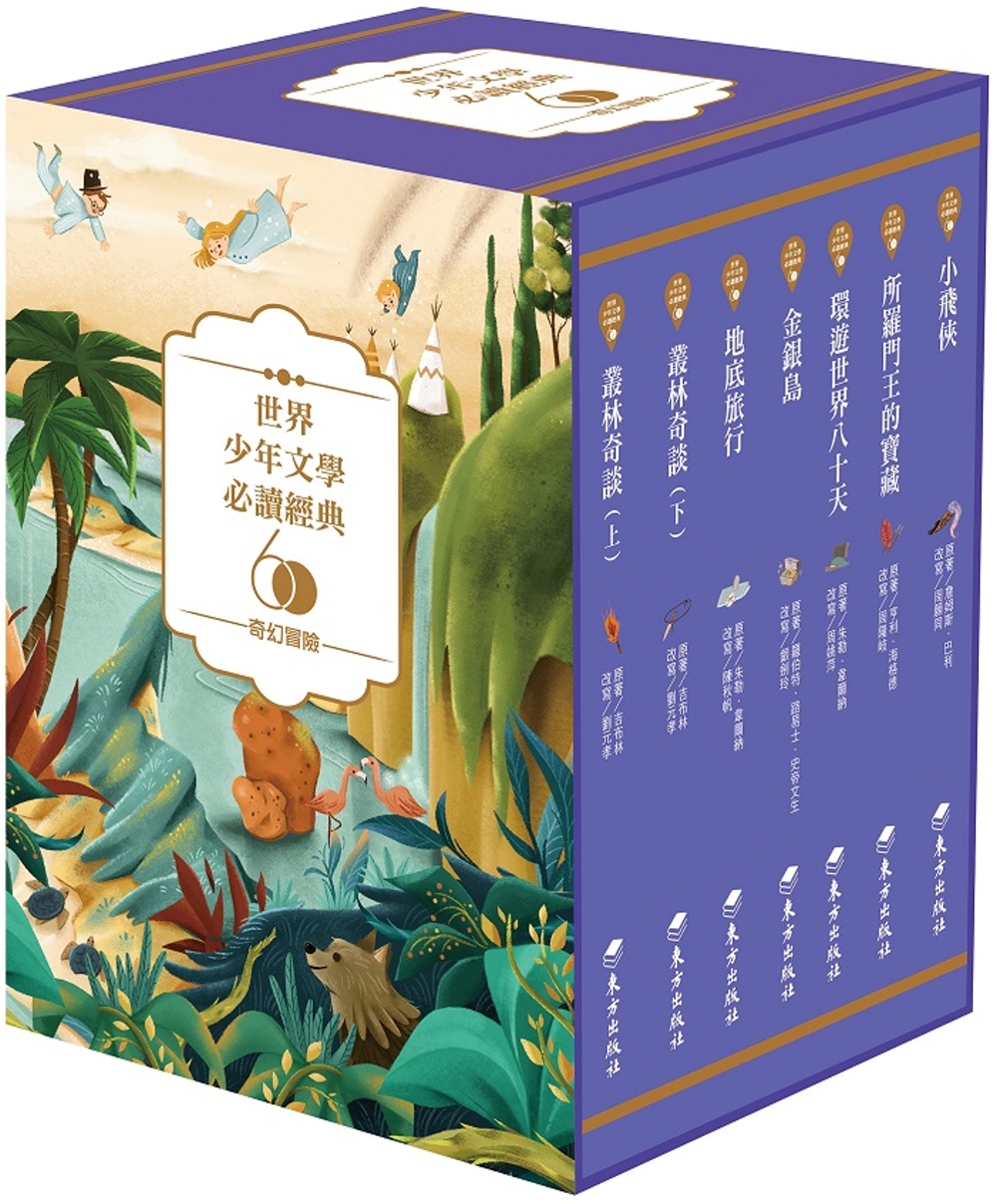 世界少年文學必讀經典60:奇幻冒險精選
世界少年文學必讀經典60:奇幻冒險精選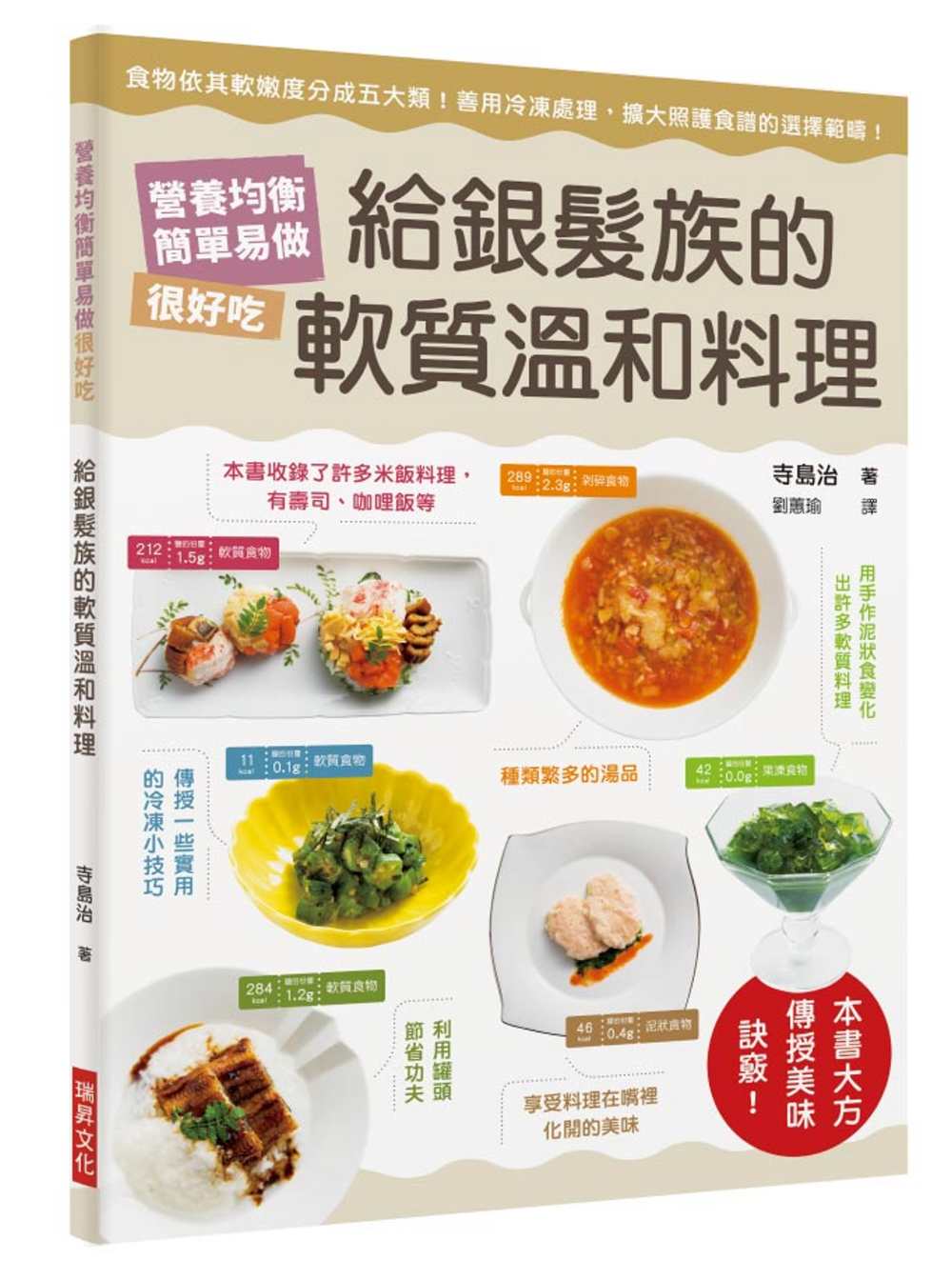 給銀髮族的軟質溫和料理:食物依其軟...
給銀髮族的軟質溫和料理:食物依其軟...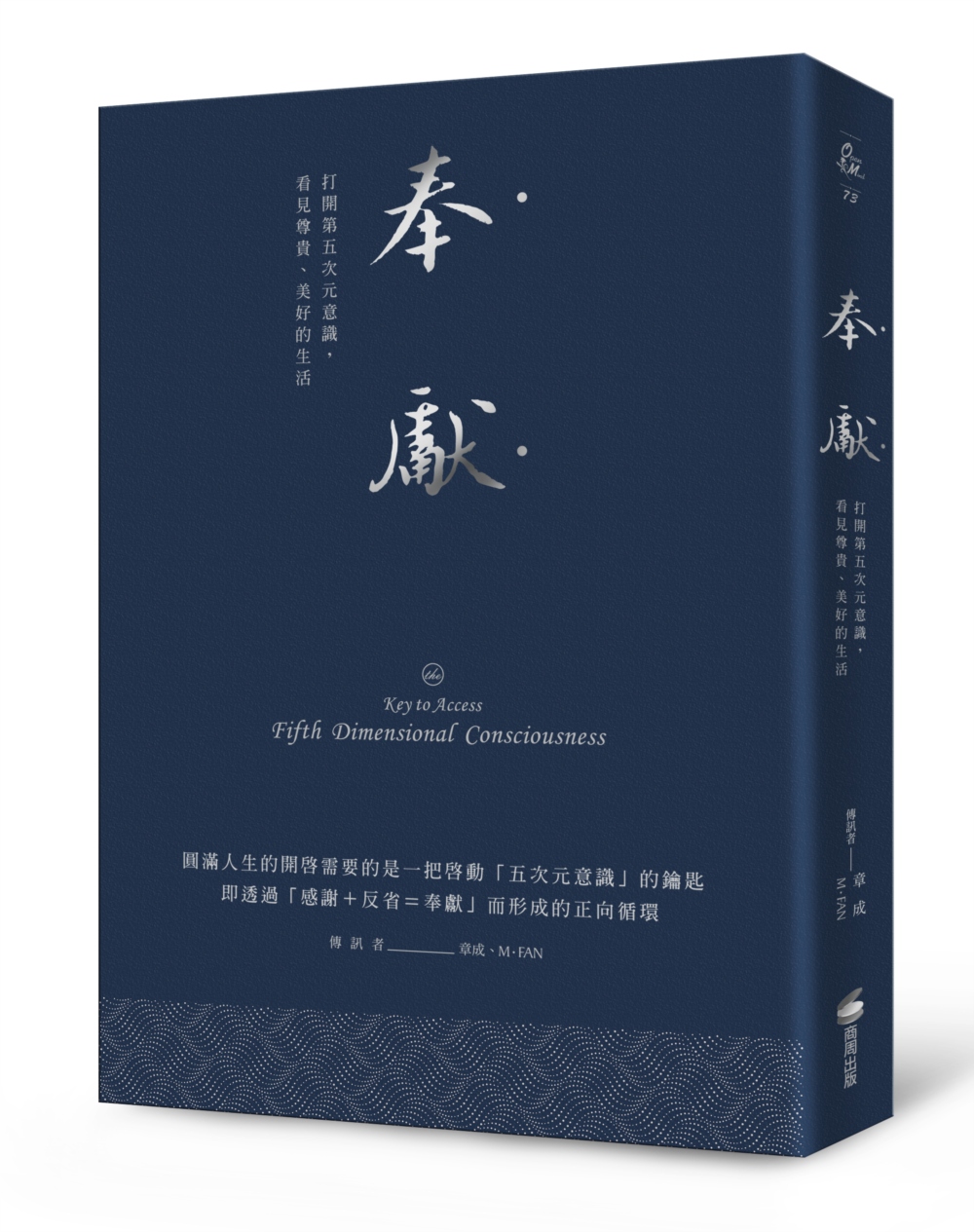 奉獻(燙銀精典版):打開第五次元意...
奉獻(燙銀精典版):打開第五次元意...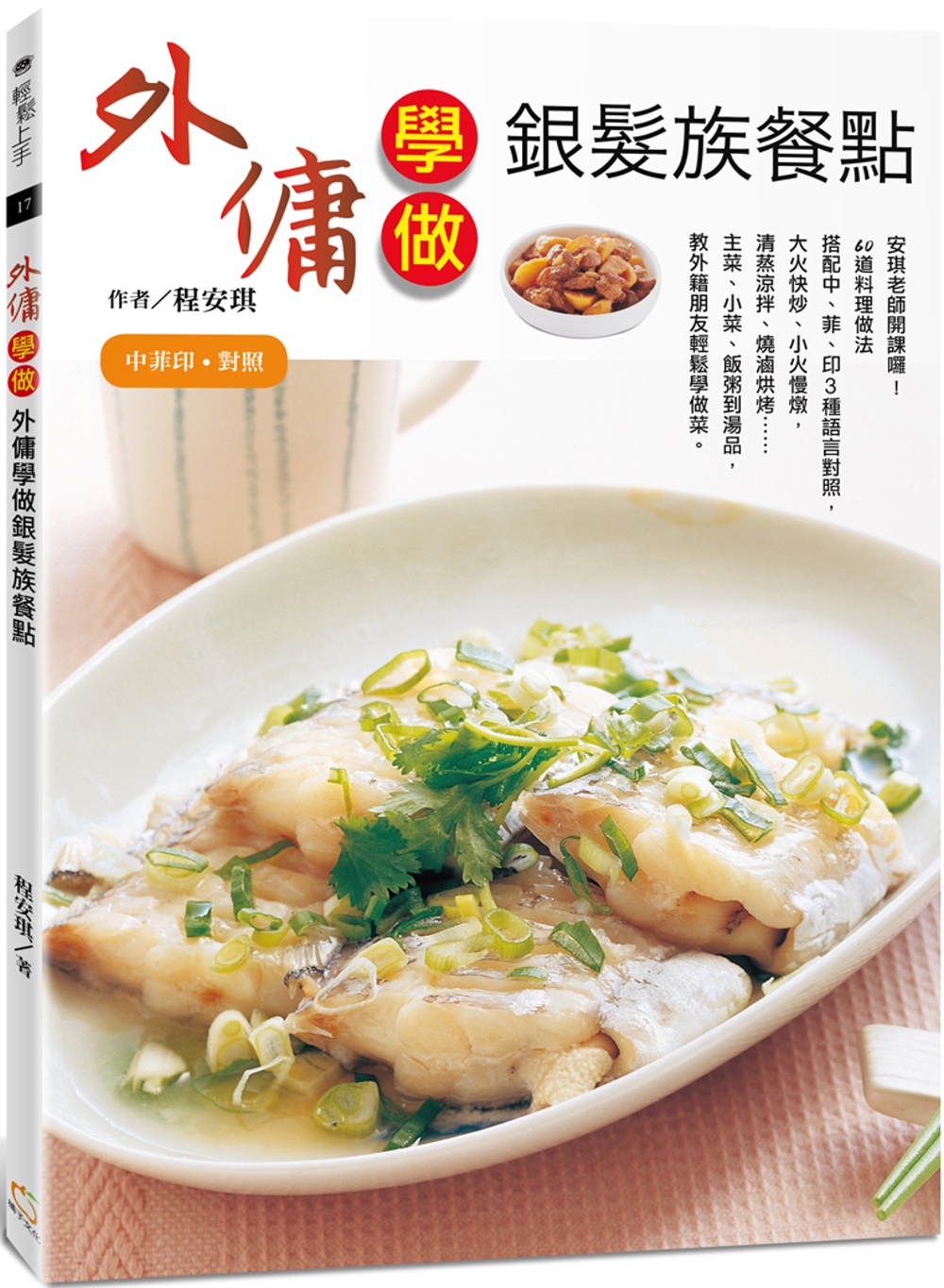 外傭學做銀髮族餐點(中菲印對照)
外傭學做銀髮族餐點(中菲印對照)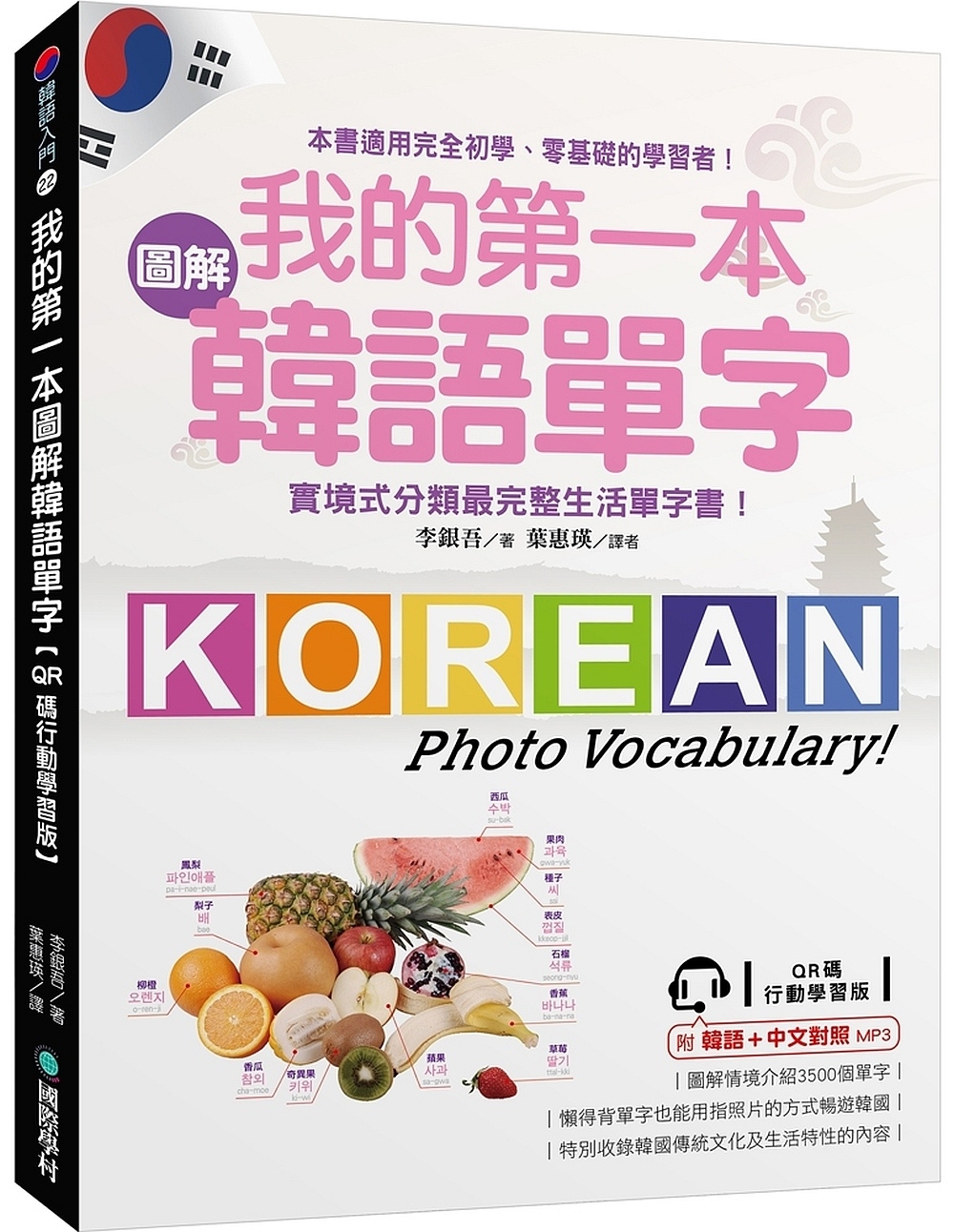 我的第一本圖解韓語單字【QR碼行動...
我的第一本圖解韓語單字【QR碼行動...